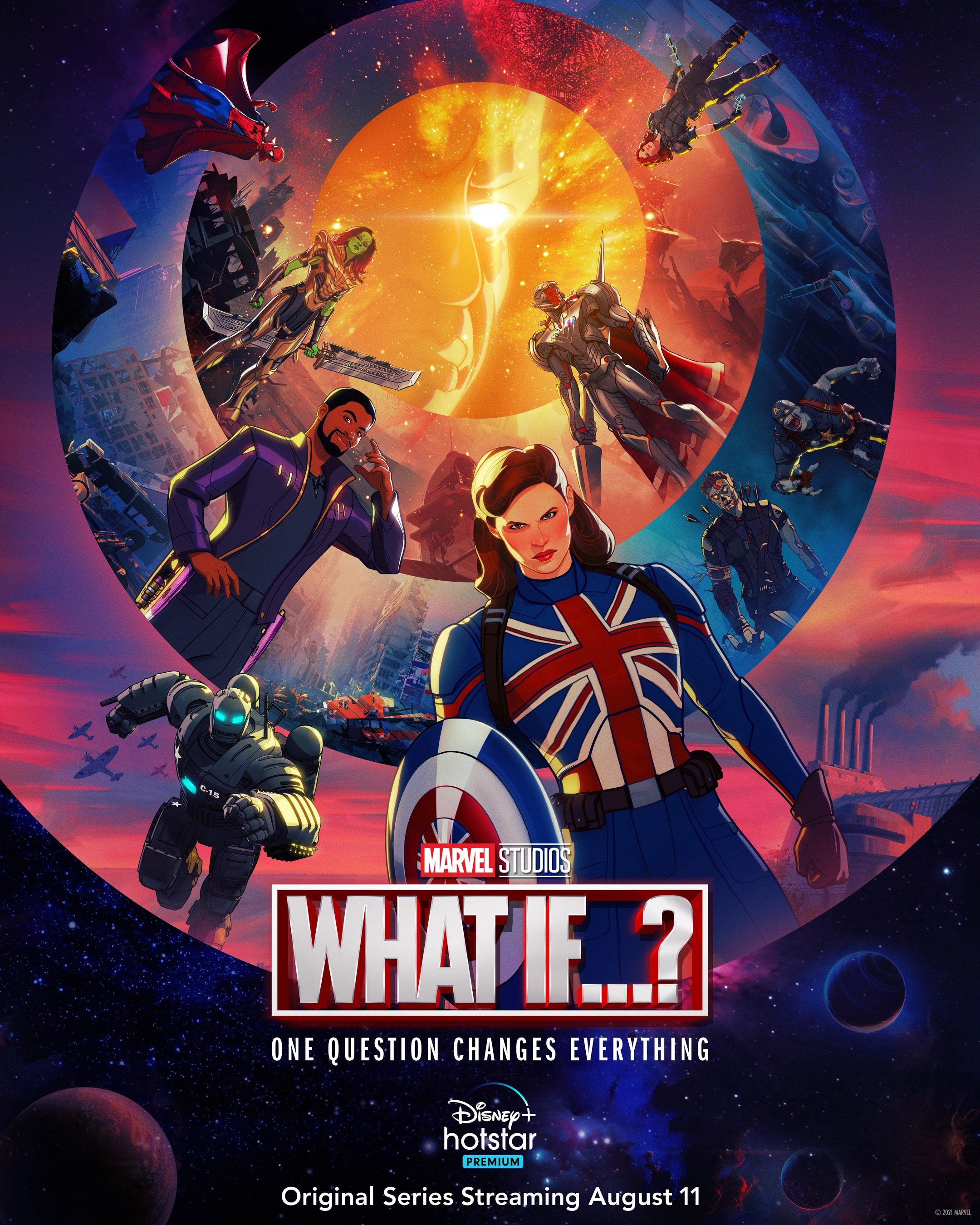What If…? ’s premise (at least in the few alternate realities that the Watcher chooses to curate for us) is that out of seemingly small choices, worlds are made. This conceit is one of radical historical contingency. This is a typical objection people raise with counterfactual history, that it places too much emphasis on individual agency and far less attention to larger social or environmental forces that shape events.
As a result, counterfactual narratives frequently tell stories about actual history that emphasize those individuals, that places their agency at the center of the story. They often center moments of violence, as if intellectual, political and moral conflicts are ultimately only resolved by war. Counterfactualism that resorts to such violence relies upon a cheap and lazy theory of history that undermines the richness of human experience. It’s embellished and caricatured by the superhero tropes, in which singular individuals are granted extraordinary ability to act and exert their will, and often morally complex issues are resolved by action-packed combat. But at the same time the powers of these superheroes illustrate the absurdity and moral poverty of seeing the world as shaped by great men. The primary timeline of the Marvel Cinematic Universe deals with the humanitarian fallout of the snap/unsnap in Falcon and the Winter Soldier, the complex sociopolitical world is trivialized by the thought that if aliens had just abducted the wrong child twenty years earlier, it could all have been avoided. In effect, What If…? illustrates the intellectual laziness of “Great Man” theories of history by showing how greatly powered individuals fail to bend history to their will.
When history turns to counterfactuals to tacitly confirm our suppositions about the importance of cause and effect, our failures of imagination become lapses in morality. If Tony Stark can turn from hero to villain because a different soldier rescued him; if Thanos’s genocide in one timeline can be excused because he missed out on the eye-opening talk with T’Challa that proved so effective in another; then we witness the excuse making that comes from simply chalking up historical cruelties as the work of men acting by the “standards of their own time.” This is the refuge of the Lost Cause mythologist, the apologist for slavery, slaughter, and supremacy. We cannot condemn the Thanoi of real history, when we see that he had the potential to be a good guy after all. Counterfactual history isn’t merely a waste of time, it’s a political Panglossian celebration, suggesting that things today are good because they could have been worse. Bad things may have happened, but at least there aren’t Nazis in the Parliament.
